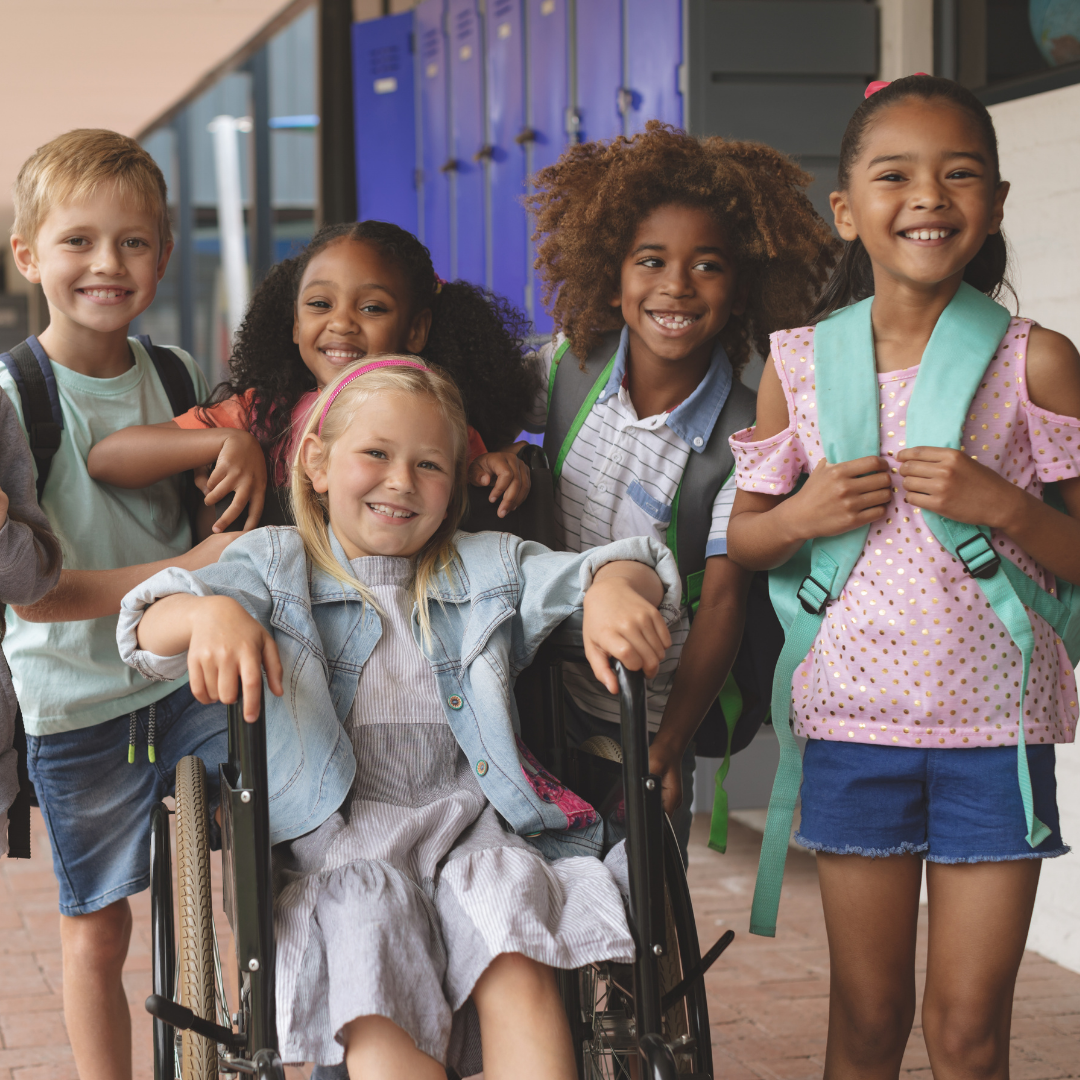
5 Tips for Teaching Kids About Disabilities
Shelby KretzShare
By Shelby Kretz
It's Disability Pride Month, so we're celebrating people with disabilities (this month and all year long). Teaching kids about disabilities is an important step in creating an inclusive world. By guiding kids through thoughtful conversations, we can help shape a future where everyone is valued and accepted. Here are five tips for diving into this conversation with your little ones this month:
Disabilities are Diverse
People with disabilities are not a monolith. It's crucial for us to emphasize that each person's thoughts about their identity and disability will differ. What might be empowering for one individual could be offensive to another. Encourage children to recognize and respect these differences, fostering a mindset that appreciates individuality and diverse experiences. By embracing the uniqueness of each person, kids learn to treat all people as individuals rather than grouping them together as one.
People Don't Need Your Help
It's essential to dispel the misconception that people with disabilities always require help. We should remind children that having a disability does not diminish a person's capabilities. Encourage them not to jump in and offer assistance without being asked or without checking if help is needed. Emphasize that individuals with disabilities are capable of managing their lives independently.
Look Beyond Appearances
Not all disabilities are visible. We can teach children to avoid making assumptions about someone's abilities or disabilities based solely on their appearance. Emphasize that disabilities come in various forms and may not be easy to see. Highlight the importance of looking beyond external appearances, fostering empathy, and recognizing that everyone faces unique challenges. Encourage kids to cultivate a mindset of understanding and compassion that extends beyond what they can see.
Not For Inspiration
Disabled people do not exist for inspiration. We should teach children to avoid seeking out stories of people with disabilities for the sake of being inspired or praising people with disabilities just for living their lives. Inspiring stories should be celebrated based on an individual's accomplishments and contributions, rather than solely because they have a disability.
Accessibility, Not Fixing
We should be mindful to frame conversations about disabilities in an empowering light. Help children understand that people with disabilities are not broken or in need of fixing. Instead, focus on creating a world that is accessible and inclusive for everyone. Encourage kids to consider how they can contribute to a more inclusive society, where barriers are eliminated, and equal opportunities are provided for all.
Teaching kids about disabilities is a vital step in fostering empathy, understanding, and respect. With these five tips, you can start a conversation with your kiddos that allows them to embrace individuality, respect autonomy, and promote a more inclusive world.
Teaching kids about disabilities is a vital step in fostering empathy, understanding, and respect. With these five tips, you can start a conversation with your kiddos that allows them to embrace individuality, respect autonomy, and promote a more inclusive world.
To join our community of changemakers bringing social justice education to kids everywhere, sign up for the LJL newsletter here.

1 comment
my son have learning disabilities and need help to teach him please